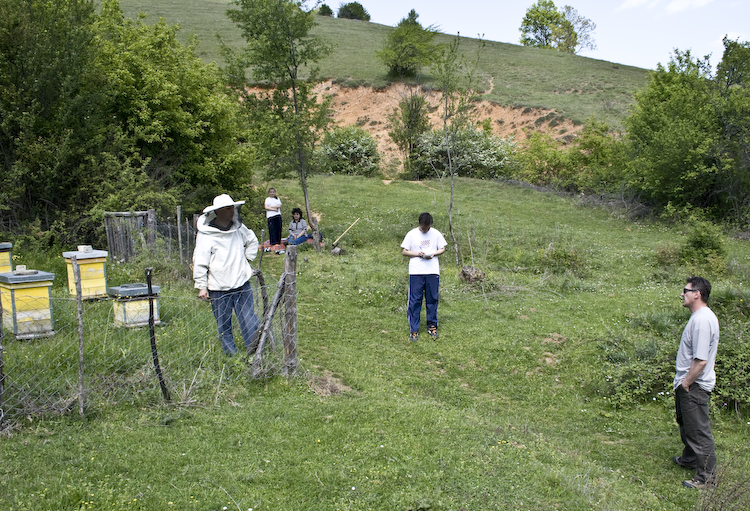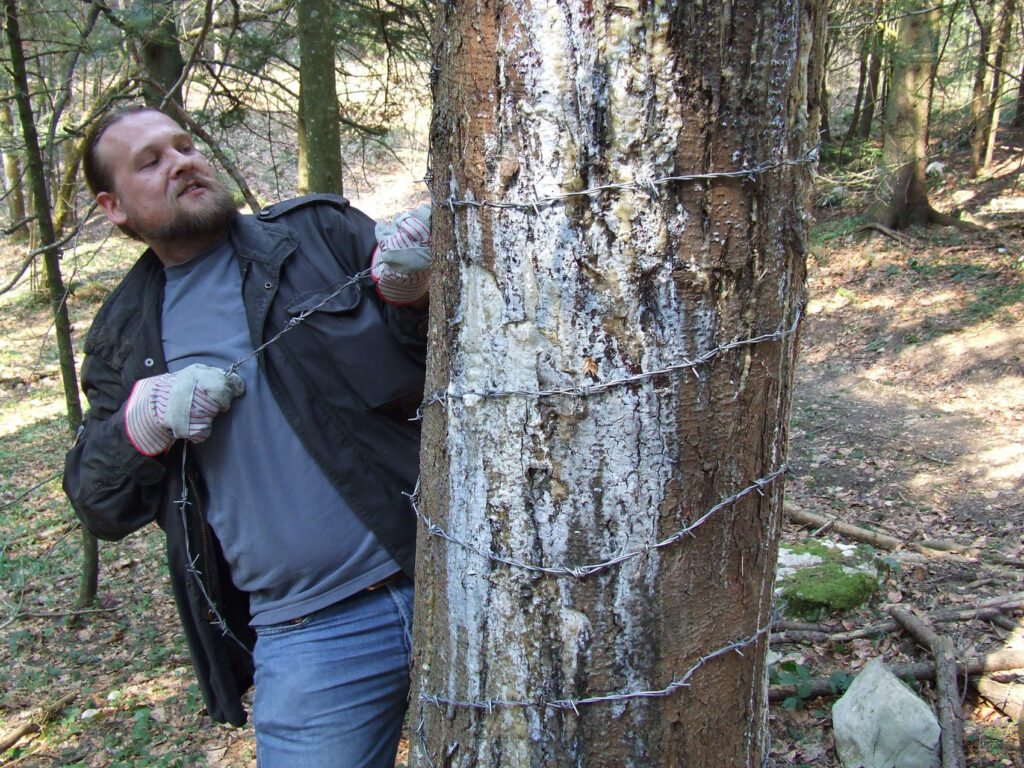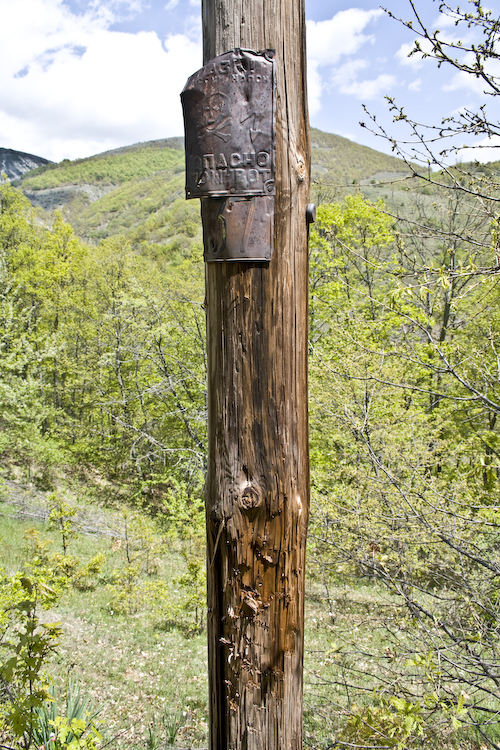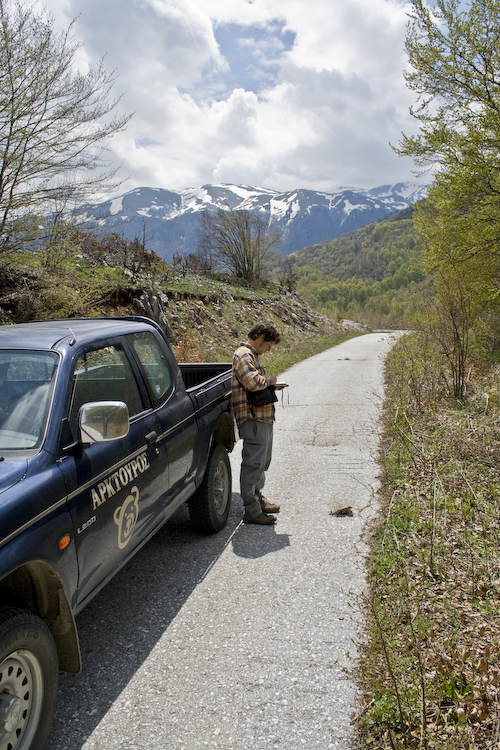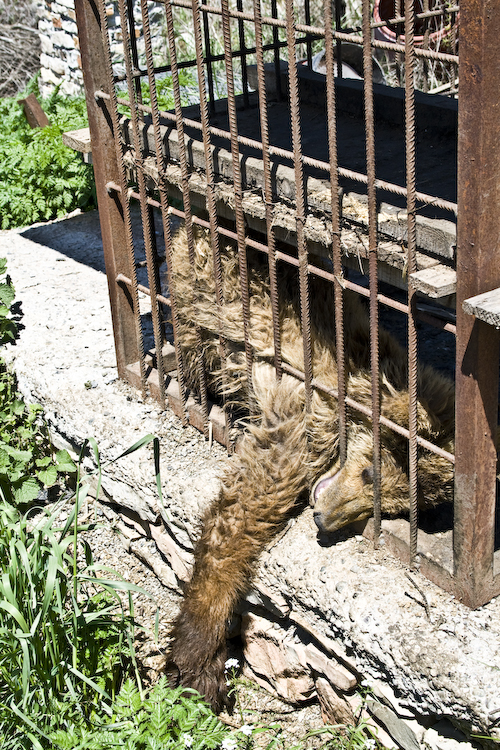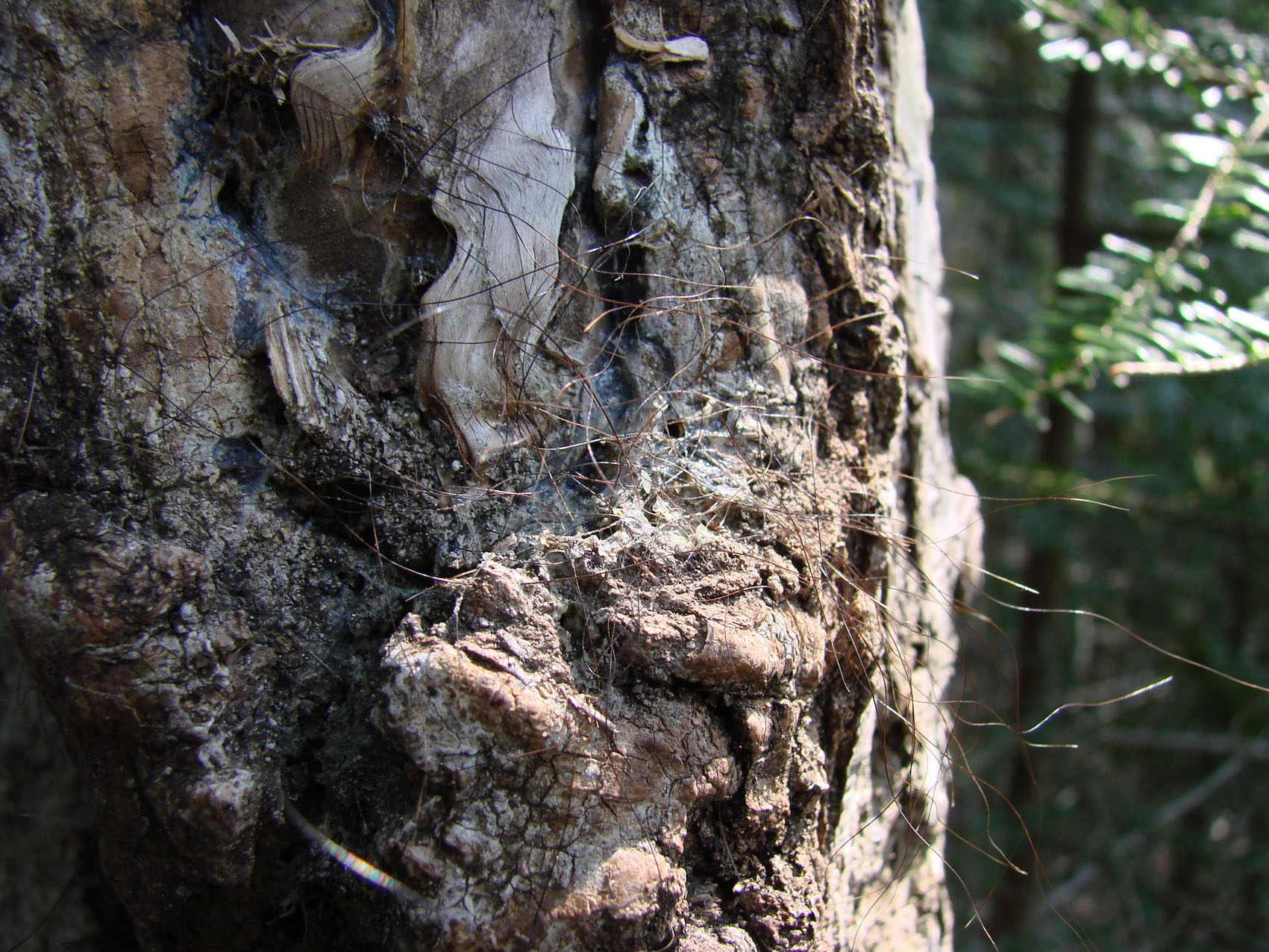The main aim of the project in 2008-2009 was to collect information that will enable a preliminary assessment of the current status of brown bears in Albania and Macedonia. Field surveys were carried out during which indirect signs of bear presence (i.e. tracks, scats, feeding signs etc.) were collected. In addition, a new non-invasive study method developed in Greece was used. This method is based on the marking behaviour of bears and uses signs (i.e. marks, bites, hair, mud prints) found on power poles to document the presence of the species in a given area. As marks and bites stay on wooden poles for a long time, they provide information not only on the current status of bear populations but also on the cumulative history of the presence of the species. By attaching barbed wire to these poles, hair was easily collected and later used for DNA analysis.
In Macedonia the project team did not find any bears in captivity. In Albania, however, dozens of captive bears were identified. They are kept in small, badly-managed zoos or in cages near restaurants or petrol stations. Most animals are kept in extremely small cages en receive poor quality food and only little water. Keeping a restaurant bear is extremely popular and the demand for young animals is increasing. The cubs are mostly captured in the wild. This puts a strain on the wild population. Bears in Mind and several partners, together with the Albanian government, are looking into the solutions to these problems.
